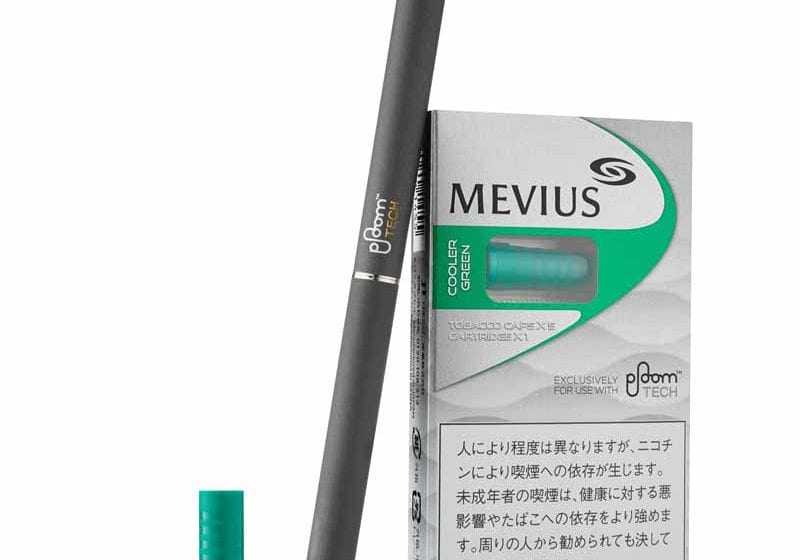Japan Tobacco Inc.’s domestic cigarette sales volume during the nine months to the end of September, at 70.3 billion, was down by 11.8 percent on that of January-September 2016, 79.7 billion.
In announcing its consolidated results today, JT said its domestic sales volume had declined because of lower industry volumes – also down by 11.8 percent – caused by the expansion of the vapor category and the continuing long-term market contraction.
JT’s cigarette market share was said to have been 61.0 percent, on a par with that of last year.
Core domestic cigarette revenue during January-September, at ¥443.1 billion, was down by 8.7 percent from that of January-September 2016 because of the sales volume decline, partially offset by the benefit of a Mevius retail price amendment last year and increasing sales of Ploom TECH.
Adjusted operating profit declined 10.6 percent to ¥178.0 billion because of the lower core revenue and despite benefits that accrued from cost decreases.
Meanwhile, Japan Tobacco International’s total cigarette and cigarette-equivalent shipment volume (including fine cut, cigars, pipe tobacco and snus, but excluding contract manufactured products, waterpipe tobacco and emerging products) during the nine months to the end of September, at 298 billion, was down by 2.0 percent on that of the January-September 2016 period, 304.2 billion.
Within that total, GFBs (global flagship brands) shipment volume was increased by 0.2 percent to 216.8 billion, from 216.3 billion.
JT reported that JTI’s total shipment volume had declined by 2.0 percent, or 2.6 percent excluding the effect of its acquisition in the Philippines, because volume increases primarily in Iran, Taiwan and emerging markets were unable to offset the impact of industry volume contraction mainly in countries of the Commonwealth of Independent States.
Declining volumes caused US-dollar core revenue to fall by 1.5 percent to $7,941 million at constant foreign exchange, and by 2.1 percent on a reported basis due to currency fluctuations.
Adjusted operating profit increased by 9.2 percent to $2,868 million at constant foreign exchange because of cost optimization and despite investments in emerging markets and emerging products. On a reported basis, adjusted operating profit grew by 4.6 percent due to currency fluctuations.
In Japanese Yen, core revenue and adjusted operating profit increased by 1.1 percent to ¥882.9 billion and by 7.8 percent to ¥307.1 billion, respectively, due to the appreciation of the US Dollar.
Including the results of its other businesses, JT’s January-September revenue fell by 1.6 percent to ¥1,592.9 billion, while its adjusted operating profit increased by 2.0 percent to ¥486.1 billion. Operating profit was down by 5.0 percent to ¥469.7 billion.
JT’s president and CEO, Mitsuomi Koizumi, said that the company continued to generate strong earnings growth in the international tobacco business, led by its cost optimization initiatives. “This, along with higher royalty revenues in the pharmaceutical business, drove the group’s adjusted operating profit growth at constant FX,” he said.
“The continuing cigarette industry volume decline puts further pressure on our Japanese tobacco business, resulting in adjustments to our forecast.
“In the meantime, our tobacco vapor product, Ploom TECH, continues to be well received by consumers. We are increasing the production capacity as we prepare to expand our sales areas nationwide in the first half of 2018.
“In the international tobacco business, we are delivering our strategic initiatives with the acquisitions in Indonesia and the Philippines which expand our geographic reach.
“At the same time, we’ve also been investing in emerging products.
“In a challenging industry environment, we commit to achieving sustainable profit growth by executing these on-going initiatives.”

